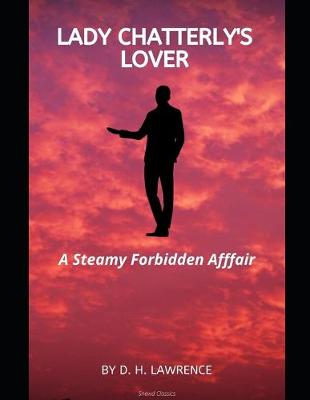Reviewed by brokentune on
This made me laugh.
And then I was almost immediately sobered up and grossed out by the following:
So he was pleased, and very tender with his daughter, as if the unborn child were his child.
This was my first read of Lawrence's work, and I am not sure how representative his writing in this book is with respect to his other works, but seeing he's revered by so many, I am really unsure how the above sentence has found its way into the book. It was part of a really great scene...my admiration of which basically wiped out entirely by that sentence.
However, this wasn't my only problem with the book:
My main gripe is that I could not shake the feeling that Lawrence did not like any of his female characters. Not only is Constance an insufferable airhead, but behind a veneer of modern ideas of social change and freedom, the book still seems have underlying messages that ultimately a woman exercising free will is "bossy" and a "bully".
'Did you hate Bertha Coutts?' she asked him.
'Don't talk to me about her.'
'Yes! You must let me. Because once you liked her. And once you were as intimate with her as you are with me. So you have to tell me. Isn't it rather terrible, when you've been intimate with her, to hate her so? Why is it?'
'I don't know. She sort of kept her will ready against me, always, always: her ghastly female will: her freedom! A woman's ghastly freedom that ends in the most beastly bullying! Oh, she always kept her freedom against me, like vitriol in my face.'
So, while some of the ideas Lawrence put forward were interesting - at least the ones he didn't turn into lectures - they feel hollow.
The romance aspect was entertaining, but I may have suffered a repetitive strain injury from rolling my eyes at the overuse of more cringe-worthy expressions.
No. The only aspect I enjoyed - and one that I had not expected from the book - was the portrayal of the war trauma that marked the lives of everyone.
In the wood everything was motionless, the old leaves on the ground keeping the frost on their underside. A jay called harshly, many little birds fluttered. But there was no game; no pheasants. They had been killed off during the war, and the wood had been left unprotected, till now Clifford had got his game-keeper again.
Clifford loved the wood; he loved the old oak-trees. He felt they were his own through generations. He wanted to protect them. He wanted this place inviolate, shut off from the world.
The chair chuffed slowly up the incline, rocking and jolting on the frozen clods. And suddenly, on the left, came a clearing where there was nothing but a ravel of dead bracken, a thin and spindly sapling leaning here and there, big sawn stumps, showing their tops and their grasping roots, lifeless. And patches of blackness where the woodmen had burned the brushwood and rubbish.
This was one of the places that Sir Geoffrey had cut during the war for trench timber. The whole knoll, which rose softly on the right of the riding, was denuded and strangely forlorn. On the crown of the knoll where the oaks had stood, now was bareness; and from there you could look out over the trees to the colliery railway, and the new works at Stacks Gate. Connie had stood and looked, it was a breach in the pure seclusion of the wood. It let in the world. But she didn't tell Clifford.
This denuded place always made Clifford curiously angry. He had been through the war, had seen what it meant. But he didn't get really angry till he saw this bare hill. He was having it replanted. But it made him hate Sir Geoffrey.
Reading updates
- Started reading
- 19 October, 2019: Finished reading
- 19 October, 2019: Reviewed
